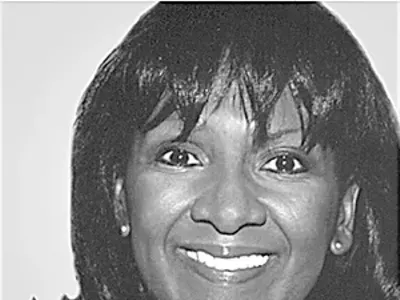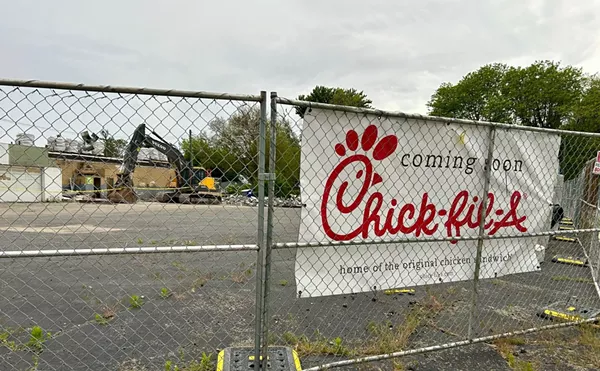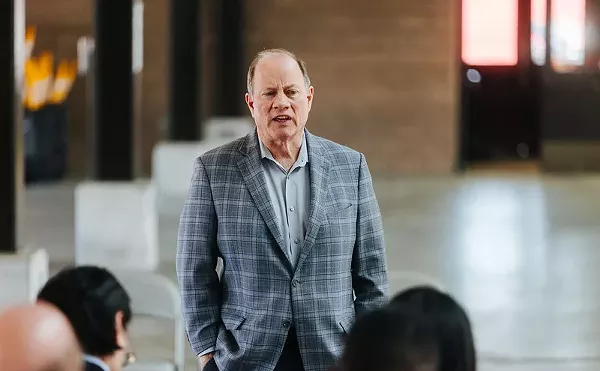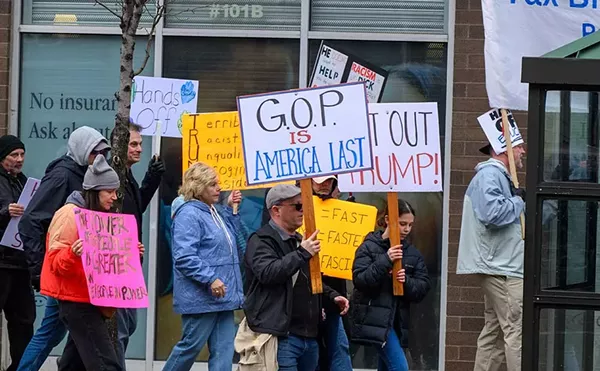
Audio By Carbonatix
[
{
"name": "GPT - Leaderboard - Inline - Content",
"component": "35519556",
"insertPoint": "5th",
"startingPoint": "3",
"requiredCountToDisplay": "3",
"maxInsertions": 100,
"adList": [
{
"adPreset": "LeaderboardInline"
}
]
}
]
Dave Bing
Q: If elected in the May special run-off election, and, assuming you are among the two finishers in the August primary, what three things can you promise to accomplish before the November run-off election?
A: 1) There is a perception that crime is rampant within the city. This view keeps senior citizens and other vulnerable populations in their homes at night and traveling within the city in fear. Basic safety is not a luxury afforded to those in and around downtown, but should be a right to all Detroiters.
One of the first objectives I will undertake during my first days in office will be the creation of a strategic crime reduction plan. I will order the Detroit Police Department to identify areas of the city that are the most vulnerable to specific types of crime and their occurrence. For example robberies, car theft are more likely to take place at night while home invasions occur in the afternoon. After the identification of crime the "hot spots", I will deploy law enforcement officers in these specified areas during precise areas of the day or night to quell crime before it happens. The goal of this plan would be contain and stop crime at its source; akin to a doctor who identified a cancerous spot on the body and removes it before it spreads.
2) According to the Detroit City Charter (2-106), "the use of public office for private gain is prohibited". Recent actions of past office holders compromised the integrity of city's government as a whole and tarnished the city's image nationally and globally.
Our elected officials have been the fodder of late night comedians. Many of us had to explain and defend the missteps of our former mayor and present city council members. Detroit can not move forward with leaders who are in their positions to build their resumes, better their families and friends and booster their bank accounts.
The city's tarnished perception as a corrupt is an impediment to economic development. For example, the National Conference of Black Mayors deiced not to convene in Detroit this year because of the recent scandal. We lost our opportunity to showcase our city to 647 mayors and nearly 2,000 officials and lost millions of dollars.
Many of my colleagues in the private sector have confided in me that the previous administration were forced pay to play to participate in city contracting.
Under a Bing administration, we will examine the current ethics ordinance:
Presently, the ethics ordinance is written to react to a proposed violation instead of perhaps preventing one.
I would require myself and all of my mayoral appointees disclose the possible conflicts of interests of themselves or family members on day one of accepting the appointment or office.
Unfortunately, pay to play is not limited to people who want to do business with the city. It has expanded to those who work for the city. City employees are strongly encouraged to contribute to various political campaigns to keep their jobs. Coming from the private sector this is abhorrent, employees should be judged on how they do their jobs, not how much they write for a check
Under a Bing administration this practice will come to an end.
3) Four years ago, the citizens stated that they did not want the mayor to have oversight of its public schools. That was a different time and under different circumstances. Recent estimates indicate 10,000 children annually exit Detroit Public Schools (DPS). In the 2007-08 school year, the system had 106,485 students. It is expected the pupil count will dip below 100,000 for this school year, the lowest since World War I. The system will likely be taken over by the state for its financial mismanagement. Finally, over 50 percent of DPS schools were built before 1930.
I have had a relationship with ever DPS superintendent for the past 14 years. If DPS has one at the time of my inaugural, I will continue to work with that person and the body as a whole on the betterment of public schools. I will work with DPS on safety within and around the schools.
Q: Depending on who is doing the estimating, the city of Detroit faces a potential budget deficit of $100 million to $200 million by the end of this fiscal year in June. Name three specific cuts you'd make to help balance the budget and the savings they'd achieve.
A: 1) The fiscal year for the city is June- July. The city council will be in the end stages of approving the 2009-2010 budget or it might already be in place by the time the new mayor is elected. This person would be forced to govern the city in a budget that he/she had no input in creating whatsoever. Since I will not be able to review that budget, it would be difficult for me to identify areas that need to be cut. Anyone who tells you something different does not understand the city's budgeting process.
2) Even though it is not a cut, the city has lost a lot of money by not filing reports to the state in a timely manner. That is simply ridiculous. I would mandate my administration to complete proper forms to Lansing on time.
3) I would not take a salary for being mayor. My wife of 20 years would not employ a city financed assistant.
Q: The city of Detroit continues to lose thousand of residents a year. Name one innovative program that you'd implement to reverse that trend.
As we all know, Detroit's population dipped below one million at the last federal census. People left the city because its leaders were not focused on quality of life issues. Everyone wants responsive city services, safe neighborhoods, and good schools.
If elected, I would establish the Office of Retention and Growth within the Mayor's Office. It would be staffed by mayoral appointees and supported by private foundations/and contributions to make it as revenue neutral as possible. The office's purpose would be to address concerns of citizens who may be prepared to leave the city to hopefully convince them to stay while being assistance to those who are interested in returning or moving into Detroit. Its staff would also research and reach out to other urban centers across the country who are encountering this problem adopt those ideas or programs to our city.
This office would work with housing developers and realtors in the city to point interested individuals and families and locating housing opportunities within the city as well as orientating them to the city once they get here. I would empower the planning department to work with this office.
Q: Do you think Detroit should continue to send garbage to its waste-to-energy incinerator?
A: In fiscal year 2007-2008, Detroit residents paid $172/ton for trash disposal – about 5 to 7 times as much as nearby suburbs, and about 14 times what private haulers paid to have their trash burned at the incinerator ($172/ton versus $12/ton).
In 2008, the city council voted to end sending our trash to its waste to energy incinerator. I support this action. Detroit can sell materials that are currently going into the incinerator on the global market. The city can not sell what now it burns. That is more money that could be earmarked for our deficit. I have been informed that of the nation's 30 largest cities, Detroit is the only major city without some type of curbside recycling program. While confronting our mounting deficit, I can not promise a city wide curbside recycling program, I would support working with the private and non-profit sectors on pilot programs.
Q: To reduce dependence on foreign oil and address the problem of climate change, President-elect Obama is promising that the federal government will make significant expenditures to promote the development of green technologies and energy-efficiency programs. What would you do as mayor to help Detroit become a leader in the "green economy"?
A: Our city is peppered with vacant buildings. I would reach out to environmental, non-profit organizations, quasi-governmental entities, and the private sector about taking these buildings, retro-fitting them for energy efficiency. For those buildings that can not be retro-fitted in their current form, in lieu of demolition I would take materials within the building and recycle them. I would then work with economic developers and marketers about promoting these buildings in the private sector.
I would work with DTE Energy, community partners such as Habitat for Humanity and the schools of Architecture and Engineering at the Wayne State and the University of Detroit to develop pilot projects that are not dependent on natural gas for home heating. I would encourage these and other entities to design clusters of homes around a central geothermal facility, for example, to minimize utility-provided natural gas consumption. Integrate applications like roof-top solar installations for water-heating or to supplement day-to-day electricity needs.
I would instruct members of my administration to do a vacant land inventory within the city and devote large tracts of land that may be available to solar arrays to help power nearby city facilities, pilot housing clusters. Not only could this help to meet the electricity needs of some of our facilities and our residents, it may help to attract solar-related and other alternative energy-related research and development and manufacturing to our city.
One of the great things about green jobs is that they can not be outsourced to other states or foreign counties. There are many opportunities to re-train current and former automobile workers and teach young people about jobs in the green economy. These jobs would range from low-skill insulation contractors, carpenters to electricians. There would also be engineers or building science managers with expertise in auditing buildings for energy efficiency. I would pull the best practices nationally and globally and implement them in Detroit. I would also work with community groups, non-profit and the business community about how they can help Detroit become a leader in this emerging sector.
Q: Can you recount a difficult situation that required you to display a high degree of personal integrity?
A: I helped a young lady get a scholarship and it was published that I paid for her education and I had to clarify it.
Q: What is one of the biggest mistakes you've made in your life, and what did you learn from it?
A: In one of my daughters' personal relationships' I reacted as a father and I should have responded as a friend.
Q: Name one of your favorite books (other than the Bible). Why is it significant?
A: Shogan by James Clavell. It taught me how to appreciate different cultures.
Q: Tell us what one of your favorite movies is, and why it is that you like it so much.
A: Spike Lee's Malcom X. It demonstrated how to handle challenges in a non-violent manner.
Q: Is their a piece of music or work of art that moves you deeply? Tell us why.
A: Marvin Gaye's "What is going on." The songs written three decades ago are still relevant today.
Q: What was your nickname as a kid?
A: Duke.






